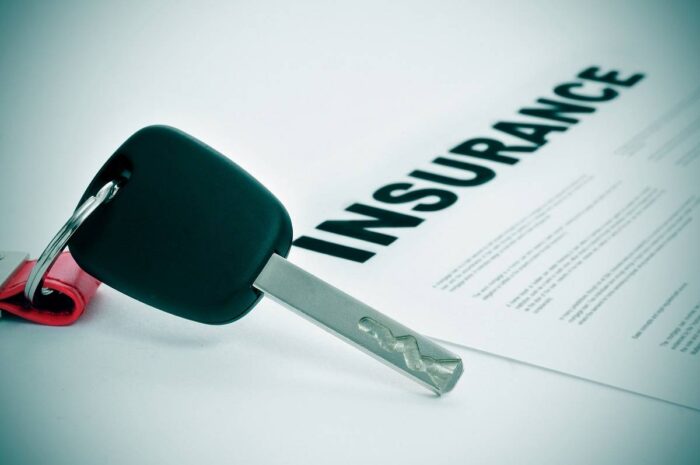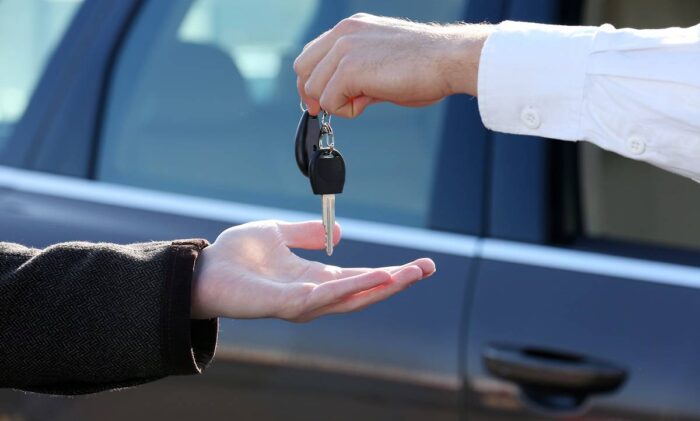People increasingly turn to welfare programs for assistance due to the current economic situation after the COVID-19 pandemic and high inflation. The most commonly used programs include Supplemental Security Income, Temporary Assistance for Needy Families, Section 8 housing assistance, and Medicaid.
Based on the following statistics, we can better understand the current situation of people enrolled in various welfare programs.
- 41 million people, or 12% of the US population, received SNAP benefits in 2022.
- The number of Americans receiving TANF in March 2022 was 1,821,377.
- 76.3 percent of the recipients of welfare programs in the US are children.
- A family with children received an average of $393 in SNAP benefits per month.
- Total SSI payments to Americans in August 2022 were $4,982,125.
- According to the United States Census Bureau, the US government spent $1,662 billion on welfare programs in 2022.
COVID-19 And Low Income Accessibility
In the past two years, the COVID-19 pandemic has triggered changes in behavior, the economy, and medicine around the world. As a result of the pandemic, employers had to enforce work-from-home policies. In 2019, the US Census Bureau reported a tripled increase in people working from home. During September 2022, inflation was 8.2%, with grocery prices increasing by 13% and housing and medical costs increasing steadily.
Energy bills are soaring in some cities because of rising natural gas prices. Vouchers, coupons, and promo codes can help people access more affordable goods and services as the price of goods and services continues to rise. Read on to learn more about how you can find a welfare car voucher.
If you are struggling to make ends meet and cannot manage your housing expenses, read our blog post about churches provide assistance with rental and housing needs.
What To Know About Welfare Vouchers
A welfare voucher is a social benefit they receive collectively, either from their employer or from their union. Welfare vouchers can enable recipients to access goods and services that can enhance their quality of life. It has taken decades for welfare vouchers to emerge as a tool for implementing social policies and meeting the needs of eligible beneficiaries.
Low-income families often report that transportation is a significant barrier to obtaining and maintaining employment. The availability or quality of public transportation varies greatly from place to place, especially in rural areas. Several of these transportation challenges can be resolved by owning a car.
Researchers have found that parents with cars work more hours and are more likely to be employed. American citizens can get a helping hand to get a car through several programs around the country.
Low-income individuals being able to work the main goal of federal and state welfare reform laws.
In an effort to assist them in this endeavor, several states have put in place programs that provide cars for low-income individuals and families since transportation has historically been a significant barrier to employment, especially in rural areas with no public transportation.
Some of these programs have been initiated by nonprofit organizations and charities, while state welfare agencies have initiated others. If you have a car but can no longer afford gas, check out our blog post on how you can get free welfare gas cards.
Who Might Qualify For A Free Car?
The ability to survive in the modern world almost depends on having a working vehicle. Families and individuals with low incomes can get free cars from a variety of organizations. The majority of free car programs require you to be on government assistance or to have a certain income level.
It is also possible that you will be required to have a valid driver's license. A selection of gently-used or repaired cars may be available to you if you meet the qualifications. There are a number of charitable and welfare programs that can provide free cars to vulnerable and low-income groups in the US.
Low-Income Families
Low-income families often struggle to make ends meet. Their day-to-day expenses cannot be managed at the same time as they are not able to sustain themselves. There is a greater likelihood of domestic violence, stress, substance abuse, unemployment, and lack of education in low-income families.
Moreover, they lack transportation, which prevents them from accessing a wide variety of employment opportunities. The majority of the United States free car programs are available to such families.
Seniors
It is common for seniors to become unable to earn enough to support themselves and their dependents as they get older. In many cases, senior citizens rely on their pensions, social security payments, government assistance programs, and welfare payments. There is a wide range of healthcare needs and disabilities among seniors.
Many seniors rely on mass transit systems that are already overburdened, are not reliable and inaccessible to seniors, or are not available in rural areas. They are unable to carry out their daily life functions due to their deteriorating mental and physical health. These seniors can benefit from free cars for their daily routines and doctor's appointments.
Domestic Abuse Victims
Women and young adults who have experienced domestic abuse are at an increased risk of both mental and physical trauma. Anxiety, depression, and stress are common among them. It is hard for them to trust people since their self-esteem has been shattered.
It is common for such individuals to attempt suicide and harm themselves. In many cases, domestic violence victims are unable to afford a car and cannot take advantage of educational and employment opportunities.
Veterans
A vehicle is also essential for veterans in their daily lives. War, harsh living conditions, inhospitable battle zones, and harsh living conditions cause most veterans to suffer from post-traumatic stress disorder and disabilities.
After transitioning into civilian life, veterans often find themselves unqualified and unequipped for regular jobs because they specialize in fighting. Homelessness among veterans makes them even more miserable. Their financial burden can be reduced, and their lives can be more fulfilling if they have a car.
Students
Commutes to schools, colleges, and universities are the most important transportation needs for students. Modern education is expensive, and students have little or no means to earn money, which makes this a big problem.
However, public transportation only partially meets this need. It is a huge burden for students who live far from their educational institutions and do not have access to mass transit routes. Having a car can ease their lives as students and open up a host of employment opportunities once they complete their education.
Natural Disaster Victims
Floods, hurricanes, and earthquakes are examples of natural disasters and calamities that cause a host of problems for those who are affected. The consequences of catastrophic events often result in people losing their homes, possessions, vehicles, and jobs.
It is common for them to need to relocate to safe places or to temporary shelters during these testing times. Since public transportation and mass transit systems are disrupted, they need cars to sustain their livelihood and get to safety.
Disabled And Differently Abled Persons
Those with disabilities and differently-abled persons are often marginalized in society because of their unique circumstances. Disabled people often face transportation issues due to their disabilities, in addition to lacking access to education and employment.
Because of the design of public transportation, disabled people might have to modify their vehicles in order to move from one place to another. Providing free cars to disabled individuals or their caregivers can overcome this transportation disadvantage.
Single Mothers
Single mothers face financial hardships on a regular basis. It is the responsibility of single mothers to earn money for their families and care for their children at the same time. In their absence, they hire babysitters or daycare centers to keep an eye on their children.
As a result, they are burdened with greater financial obligations. For single moms, receiving a free car is a huge relief, as they can use it to access employment opportunities, drop off their kids at school, and shop for groceries.
Frequently Asked Questions
People often have difficulty finding free and welfare car vouchers and do not understand the application process when it comes to free cars. Here are a few commonly asked queries on the matter:
1. What does a car voucher do?
Individuals and families with low incomes can apply for car vouchers, like other assistance vouchers. Car vouchers help eligible individuals fulfill their transportation needs, gain access to employment opportunities, and live normal lives.
2. What is a transportation voucher?
Individuals with low incomes may use transportation vouchers to exchange them for rides with selected transportation providers. There are many types of transportation services available to the public under this arrangement, including dial-a-ride services, taxis, agency vans, and volunteer drivers. Vouchers for transportation are not transferable; the person whose name appears on the voucher must be the one traveling.
3. How can I get a car fast with no money?
You can apply to a charity or free car donation organization if you are a low-income individual with no means to buy a car. Typically, you must meet certain eligibility criteria, have income under certain prescribed thresholds, and explain why you need a car urgently.
These awarding organizations vary in size and scope, some operating locally and others nationwide. Look into the programs available in your state or county and apply for those you qualify for.
Following the COVID-19 pandemic, inflation increased, resulting in a record number of welfare applications. Getting a free car is made possible by welfare car vouchers for low-income families and individuals. If you need a car but cannot afford one, read our blog post on what you should know if you need help getting a car.
Frequently Asked Questions:
A welfare car voucher is a form of financial assistance provided by certain government or nonprofit organizations to help eligible low-income individuals and families obtain a vehicle to support their transportation needs.
To apply for a welfare car voucher, contact your local Department of Health and Human Services or Department of Social Services office, as these agencies often administer such programs. The application process and eligibility requirements vary by location.
Eligibility criteria may include income level, employment status, family size, and proof of need for transportation assistance. Each program has its own specific requirements, so it's essential to research and contact the administering agency to determine if you qualify.
Welfare car vouchers typically come with specific guidelines on how they can be used, such as purchasing a reliable used vehicle or obtaining a car through a designated dealership or nonprofit organization. Ensure you understand the voucher's restrictions before making any purchase.
If you don't qualify for a welfare car voucher, explore alternative options like nonprofit organizations that provide cars or car assistance, local community programs, or financing options through car dealerships that cater to low-income individuals.
Explore the rest of the Gov-Relations resources to find out more about government and private assistance programs. With increasing inflation in the aftermath of the COVID-19 pandemic, the number of people applying for welfare programs is at a historic high.
A welfare car voucher can go a long way in helping a low-income family or individual get a free car. The groups that need free cars the most include low-income families, seniors, victims of domestic abuse, veterans, seniors, and students.
If you need a car but cannot afford one, read our blog post on what you need to know if you need help getting a car. For more information about the various government and private assistance programs, check out the rest of the Gov-Relations resources.







